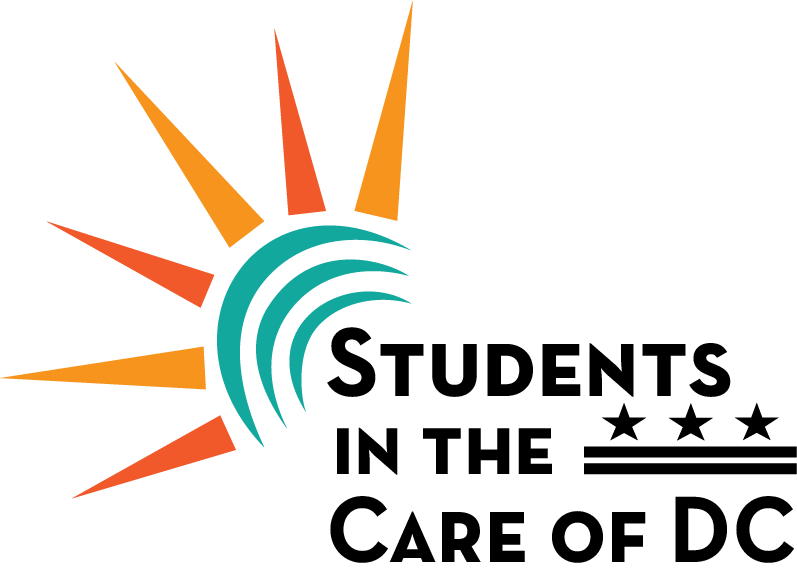In 2017, then Chairperson of the Committee on Education, Councilmember David Grosso held a public roundtable to discuss the education of students who are involved in the child welfare system and/or the juvenile/adult justice systems. From this roundtable stemmed the convening of a working group to further identify challenges and begin outlining recommendations. The working group was made up of advocates, agencies, nonprofits, youth and parents and met five times between February and June of 2018.The working group released the Students in the Care of the District of Columbia Working Group Recommendations report. This report identified eight main areas that needed to be addressed in order to strengthen services and supports for students in D.C.'s care:

Enrollment

Receiving and Transferring Credits

Cross-Agency Communication

Accountability

Education Quality

Out of State Placements

Data Availability and Analysis

Addressing the Needs of Young Adult Students

David Grosso,
Former D.C. Councilmember
“The educational needs of youth who are involved with our justice or foster care systems have not received the attention they deserve. Too often, these youth are underserved and subject to disruptions that make it difficult to achieve their educational goals. The establishment of the Office for Students in the Care of D.C. (SCDC) can help address these shortcomings and empower our youth to succeed by improving opportunities to pursue their education, access workforce development services, and develop real-world life skills. This critical work will bring the government of the District of Columbia closer to fulfilling its responsibility to provide high-quality education to the youth who are in its care.”
As a result of the recommendations of the working group, The Students in the Care of D.C. Coordinating Committee was established by the Council of the District of Columbia and became effective through D.C. Law 22-303 on April 11, 2019.
Statutorily, the SCDC Coordinating Committee will:
- Provide leadership in the development of strategies and policies that guide the implementation of the District’s policies and programs to improve educational outcomes for students in the care of D.C.
- Assess current efforts in place to educate students in the care of D.C.
- Cooperate with and support members in fully implementing all relevant agreements and memorandums of understanding.
- Review existing data collection and sharing efforts within and across agencies and make recommendations regarding the exchange and sharing of data for students in the care of D.C.; provided, that all such recommendations comply with local and federal law.
- Establish an effective system for monitoring the progress of general education and special education for students in the care of D.C.
- Determine educational outcomes for students in the care of D.C., build capacity to track and measure outcomes, and implement strategies in accordance with the strategic plan.
- Foster collaborative relationships with agency counterparts in Maryland and Virginia for students in the care of D.C. who are placed outside of the District.
- Make recommendations concerning the coordination of the activities, implementation of practices, strategies, or programs, and the mobilization of the resources of member agencies to improve educational outcomes for students in the care of D.C.
The SCDC Coordinating Committee includes appointees that represent government agencies, community-based organizations, community leaders with content area expertise, students who have been involved in the child welfare and juvenile or criminal justice system and their parents.
The Governmental Non-Voting Member Appointments are:
- Director, Court Services and Offender Supervision Agency for the District of Columbia
- Director, Pretrial Services Agency for the District of Columbia
- Director, District of Columbia Public Defender Service
- Director, Bureau of Prisons
The Governmental Voting Member Appointments are:
- State Superintendent, OSSE;
- Director, ReEngagement Center;
- Director, Department of Youth Rehabilitation Services;
- Director, Child and Family Services Agency;
- Director, Department of Corrections;
- Chancellor, District of Columbia Public Schools;
- Executive Director, Public Charter School Board;
- President, University of the District of Columbia Community College;
- Director, Family Court Social Services Division;
- Chief Judge, Superior Court of the District of Columbia;
- Executive Director, Corrections Information Council;
- Director, Department of Behavioral Health;
- Attorney General for the District of Columbia;
- Director, Department of Disability Services;
- Director, District of Columbia Public Defender Service; and
- Deputy Mayor for Education
The Community Member Appointments are:
- Parent, guardian or foster parent of a student in D.C.
- Current or former student involved in the juvenile or criminal justice system
- Current or former student involved in the foster care system
- A representative from an organization that provides services to students involved in the juvenile or criminal justice system
- A representative from an organization that provides services to students involved in the foster care system
- An education attorney representing students in the care of D.C. involved in the juvenile or criminal justice system
- One representative each from 2 charter school local education agencies

